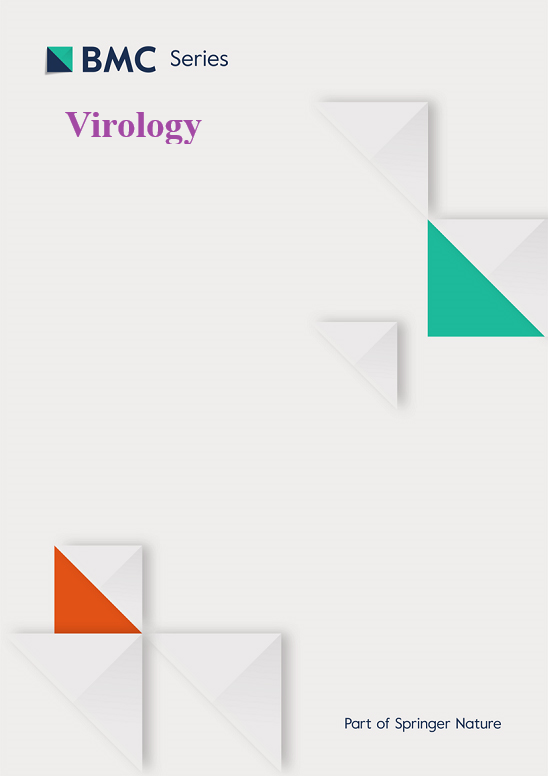用于检测在印度流行的登革热病毒的人体样本中和抗体的微灶减少中和试验的性能评价
IF 2.4
3区 医学
Q3 VIROLOGY
引用次数: 0
摘要
背景:登革热疫苗研究在很大程度上取决于通过测量针对所有四种登革热血清型的中和抗体水平来了解人群的血清状态。在这项研究中,我们优化了微聚焦减少中和试验(micro-FRNT),该试验在96孔板格式中测量中和抗体滴度。方法采用53份健康献血者血清/血浆样本(31份抗登革热IgG阳性,22份抗登革热IgG阴性),对登革热病毒(DENV) 4种血清型印度流行株进行检测。检查了鲁棒性、准确性、精密度、灵敏度和特异性等关键参数。在30个样本的一个亚组中,同时在24孔和96孔板格式中进行中和试验,并比较FRNT50滴度。结果100%、87%、100%和100%的样品对DENV-1、-2、-3和-4的检测精度分别在25% CV范围内。micro-FRNT在100%、80%的DENV-1/-2/-3和DENV-4血清型样品中分别显示出30% CV以内的检测精度。测定DENV-1、DENV-2、DENV-3、DENV-4的定量下限分别为16、13、11、11。我们还证明了使用96孔板与标准24孔板格式比较的FRNT50滴度,对所有四种血清型均产生极好的正相关(r = 0.88至0.96)。总之,我们证明了DENV特异性micro-FRNT方法的有效性,缩短了DENV的周转时间。micro-FRNT方法是流行病学和疫苗反应研究中监测登革热病毒免疫反应的有用工具。本文章由计算机程序翻译,如有差异,请以英文原文为准。
Performance evaluation of micro-foci reduction neutralization test for the detection of neutralizing antibodies in human samples against dengue viruses circulating in India
Background
Dengue vaccine studies largely hinge on the understanding of the serostatus of a population by measuring the levels of neutralizing antibodies against all four dengue serotypes. In this study, we optimized the micro-foci-reduction neutralization test (micro-FRNT) that measures neutralizing antibody titres in a 96-well plate format.
Methods
A total of 53 healthy blood donor serum/plasma samples, (31 anti-dengue IgG positive and 22 anti-dengue IgG negative) were used to validate the micro-FRNT against circulating Indian strains of all four serotypes of dengue viruses (DENV). Key parameters such as robustness, accuracy, precision, sensitivity, and specificity were examined. In a subset of 30 samples, the neutralization test was performed simultaneously in 24-well and 96-well plate formats, and FRNT50 titres were compared.
Results
Our results demonstrated that 100%, 87%, 100% and 100% of samples had micro-FRNT50 titres within 25% CV in the intra-assay precision against DENV-1, -2, -3 and -4, respectively. The micro-FRNT demonstrated inter-assay precision within 30% CV in 100%, 80% of samples against DENV-1/-2/-3 and DENV-4 serotypes, respectively. The lower limit of quantitation for DENV-1, DENV-2, DENV-3, and DENV-4 was determined to be 16, 13, 11, and 11, respectively. We also demonstrated comparable FRNT50 titres using a 96-well plate against the standard 24-well plate format, yielding excellent positive correlation (r = 0.88 to 0.96) for all four serotypes.
Conclusion
In summary, we demonstrated the validation of the DENV-specific micro-FRNT method for DENV with a reduced turnaround time. The micro-FRNT method presents a useful tool for monitoring immune response against dengue viruses during epidemiological and vaccine response studies.
求助全文
通过发布文献求助,成功后即可免费获取论文全文。
去求助
来源期刊

Virology
医学-病毒学
CiteScore
6.00
自引率
0.00%
发文量
157
审稿时长
50 days
期刊介绍:
Launched in 1955, Virology is a broad and inclusive journal that welcomes submissions on all aspects of virology including plant, animal, microbial and human viruses. The journal publishes basic research as well as pre-clinical and clinical studies of vaccines, anti-viral drugs and their development, anti-viral therapies, and computational studies of virus infections. Any submission that is of broad interest to the community of virologists/vaccinologists and reporting scientifically accurate and valuable research will be considered for publication, including negative findings and multidisciplinary work.Virology is open to reviews, research manuscripts, short communication, registered reports as well as follow-up manuscripts.
 求助内容:
求助内容: 应助结果提醒方式:
应助结果提醒方式:


